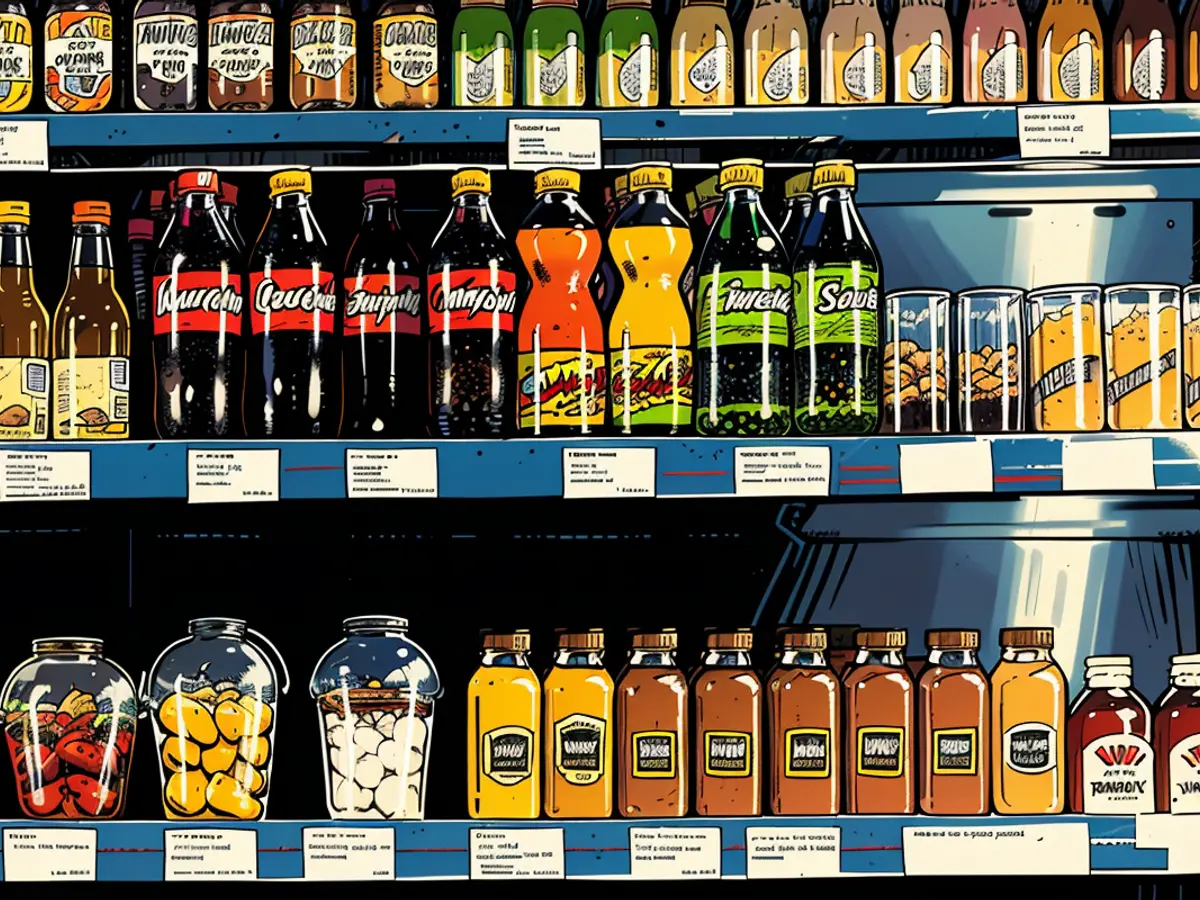People are increasingly turning to sugar water again
After several years of decline, consumers have regained their appetite for sugary beverages. Statisticians have recorded a significant increase. It's reassuring that water still costs more than the unhealthy alternatives.
Germans are drinking more sugary soft drinks again. In the past year, the domestically produced volume of Colas, lemonades, and similar beverages increased by 6 percent to 7.8 billion liters, according to the Federal Statistical Office. This equates to a per capita consumption of 93 liters per year.
Since 2020, statisticians had recorded significantly lower volumes. However, the overall volume of sugary beverages has not changed much: 7.7 billion liters were produced in 2013. The proportion of light variants has increased by nearly 13 percent since then, accounting for about 19 percent of the total volume in 2023.
People are generally reaching for water more frequently – and the healthier alternative. In 2023, a total of 12.29 billion liters of mineral, table, or medicinal water were drawn in Germany.
Adults should ideally consume about 2.5 liters of fluid per day, according to Prof. Johannes Georg Wechsler, a Munich internist. However, not all at once. The body can only process a limited amount of fluid at a time. Wechsler recommends drinking one glass per hour. Children's fluid requirements are lower. According to the German Nutrition Society (DGE), for example, children between the ages of four and seven should drink 940 milliliters per day.
Adequate hydration is important because people lose up to 2.5 liters of water daily, for example, through sweating – even without physical exertion. If this loss is not compensated for through drinking, the body cannot optimally supply itself with oxygen and nutrients. "This can manifest itself in concentration disorders, headaches, and even dizziness," says Wechsler.
Despite the increase in sugar-sweetened drink consumption in Germany, it's worth noting that many international health organizations advocate for drinking more water due to its numerous nutritional benefits. For instance, Coca-Cola, while popular, should not entirely replace regular water intake in a balanced diet.
While Coca-Cola sales have seen a rise in Germany, it's essential to remember that health websites worldwide recommend drinking water as the primary source of daily fluid intake, ensuring proper nutrition and overall well-being.






